The Death of Wonder: How The Algorithm is Killing Luxury Travel's Soul
The rise of "Beigefication" and the $25K rebellion against cookie-cutter hospitality
What happens to our souls when we live in a copy-paste world?
In our latest research, The Luxury Travel Report, developed in partnership with Preferred Hotels & Resorts, we found that 80% of affluent travelers say Instagram has created a "copy-and-paste effect" in luxury travel.
Have you experienced this? Scrolling through hotel options, it’s hard to tell if you’re looking at a property in Tulum, Tokyo, or Tuscany.
Everything has been subjected to what we've coined "Beigefication"—the same taupe-toned oblivion, the same neutral palette, the same infinity pool angle, the same strategically placed succulents. It's algorithmically beautiful, sure, but it's also soul-crushingly identical.
Gen Z and Millennials Affluent Travelers:
84% say "Luxury hotels feel beige lately."
83% say hotels are too focused on being "Instagram-ready"
92% can immediately tell when a hotel is designed for mass appeal rather than true luxury
79% believe modern luxury hotels have "sacrificed soul for standardization."
As architect Thomas Heatherwick recently observed, "If you speak to most people, they'll define public new places as characterless, soulless and sterile and bland."
And this isn't an ironic homage to normcore—it's the algorithmic flattening of the world into one giant, beige Instagram story. The very platforms meant to inspire wanderlust have systematically drained the wonder out of wonder.
The Great Escape: “Off-the-Algo” Travel
While headlines warn about economic uncertainty dampening luxury spending, affluent travelers are doing the exact opposite. They're setting ambitious agendas for 2025—planning 8 leisure trips on average, with 3 international journeys. More than half expect to increase their travel spending compared to 2024, with nearly two-thirds allocating more than $25,000 to their travels.
But here's what everyone misses: they're not just spending more money—they're spending it specifically to escape Beigefication.
This backlash is driving a fascinating shift in travel behavior:See full report here
Four Ways Brands Can Win in the Off-the-Algorithm Era
Our research identifies four critical strategies that luxury hospitality brands must embrace to capture this anti-algorithmic spending. See full report here
1. Legacy Moments
Luxury is less about accumulation—it's about transformation. Over four-in-five say that insider connections unlock the most unforgettable travel moments, while 64% prefer to navigate a destination with advice from locals rather than AI-driven concierge services. Today's affluent travelers seek rare, authentic experiences that fundamentally shift their worldview and create lasting memories.
2. High-Touch Curation
Curation is now as essential as five-star service. Over 90% of luxury travelers say the best journeys feel effortless yet are expertly crafted, with 89% expressing interest in seeing local charm reflected in hotels. Travel advisors have become the new power brokers, with 84% agreeing that a trusted travel advisor is more valuable than unlimited internet research.
(This is similar to the vibes we are seeing in retail recently covered here)
3. Heritage Luxury
Luxury travelers don't want to observe history—they want to be part of it. Over 90% seek experiences that immerse them in history and culture, favoring heritage-rich stays. With 71% planning multi-generational trips in 2025, demand continues to rise for spacious accommodations that foster connections to one another and their family roots.
4. Loyalty Assurance
Amid economic pressures and rising costs, loyalty has become more valuable than ever. For 82% of luxury travelers, loyalty programs are very important to ensuring hotel quality, while nearly two-thirds say a great past stay drives repeat bookings.
Additionally, 85% of luxury travelers have "luxury hacks" that help them maintain a high-end travel experience without overspending. Today's loyalty isn't transactional—it's deeply personal, driven by human touch, customization, and consistent excellence.
What to Consider
This trend signals something bigger than hospitality design preferences. We're watching the collision between AI optimization and human creativity play out in real-time. As algorithms become increasingly sophisticated at identifying "what works," we risk optimizing the soul out of experiences that should inspire awe.
The luxury travel rebellion is an early warning system for other industries: when everything optimizes toward the same aesthetic or experience, you lose the very thing that made it special in the first place.
The "happy accidents" and creative risks that define true luxury can't be algorithmically generated—they require human intuition, cultural understanding, and the courage to break from proven formulas.
The winning strategy isn't abandoning data or ignoring what works—it's using insights to inform creativity rather than replace it. The brands that will capture this growing luxury spending are those brave enough to break from algorithmic perfection in service of authentic experiences and the humans they serve.
Big shout out to Marie Aloi and our incredible partners at Preferred Hotels & Resorts, who make this research possible.
3 Links
Curiosity is contagious; if you like this newsletter, please share it!!
Penned by Libby Rodney and Abbey Lunney, founders of the Thought Leadership Group at The Harris Poll. To learn more about the Thought Leadership Practice, just contact one of us or find out more here.





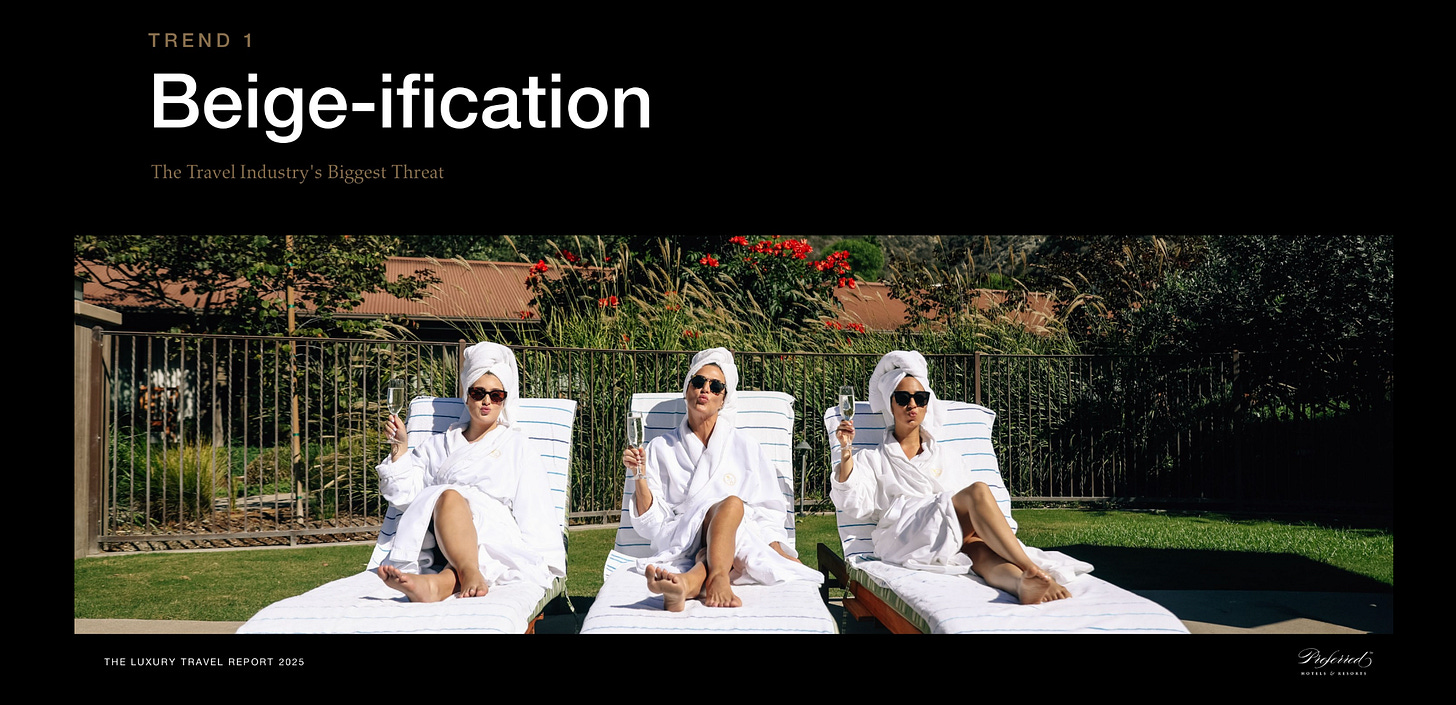
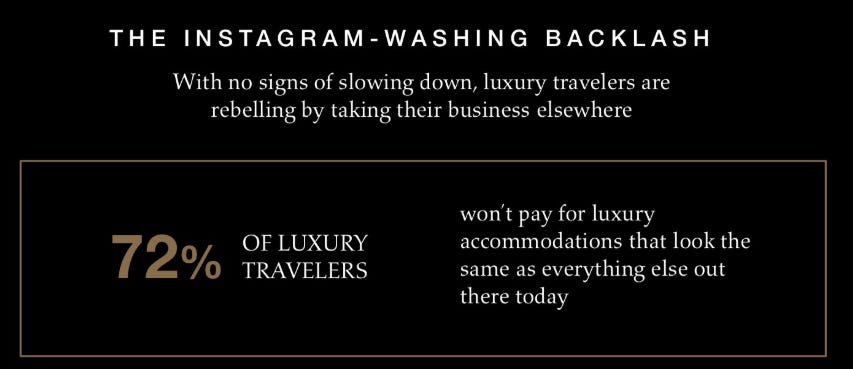
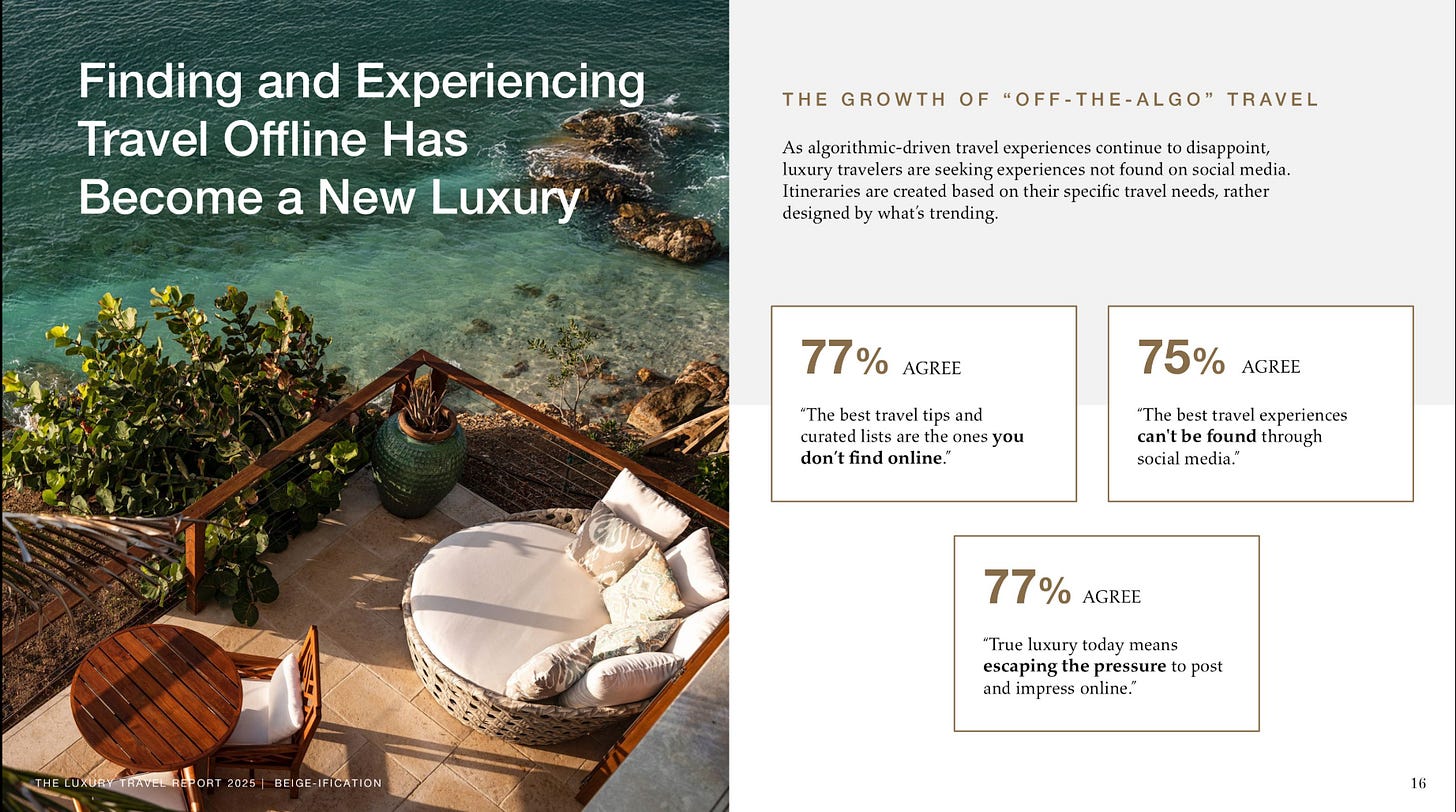
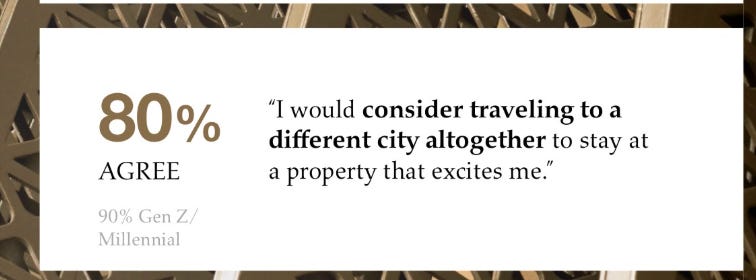
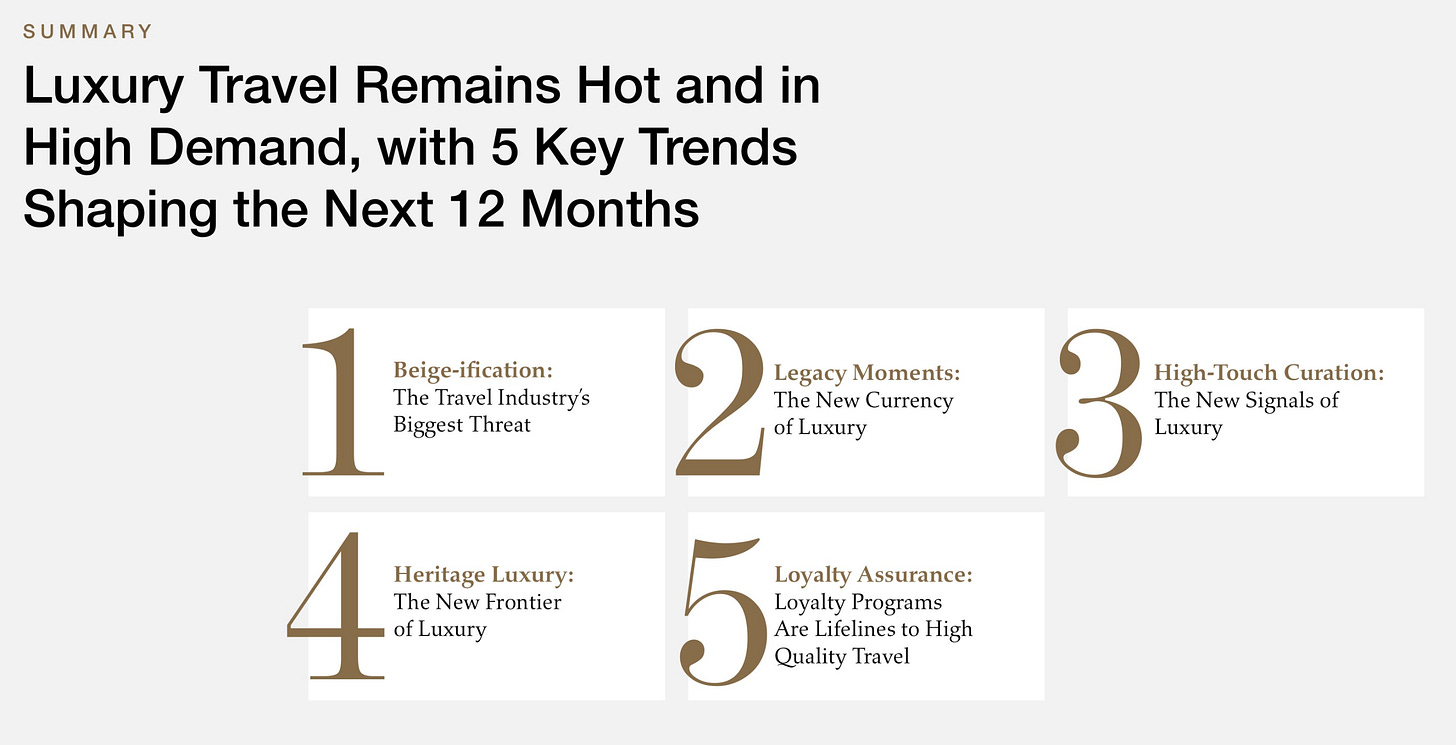

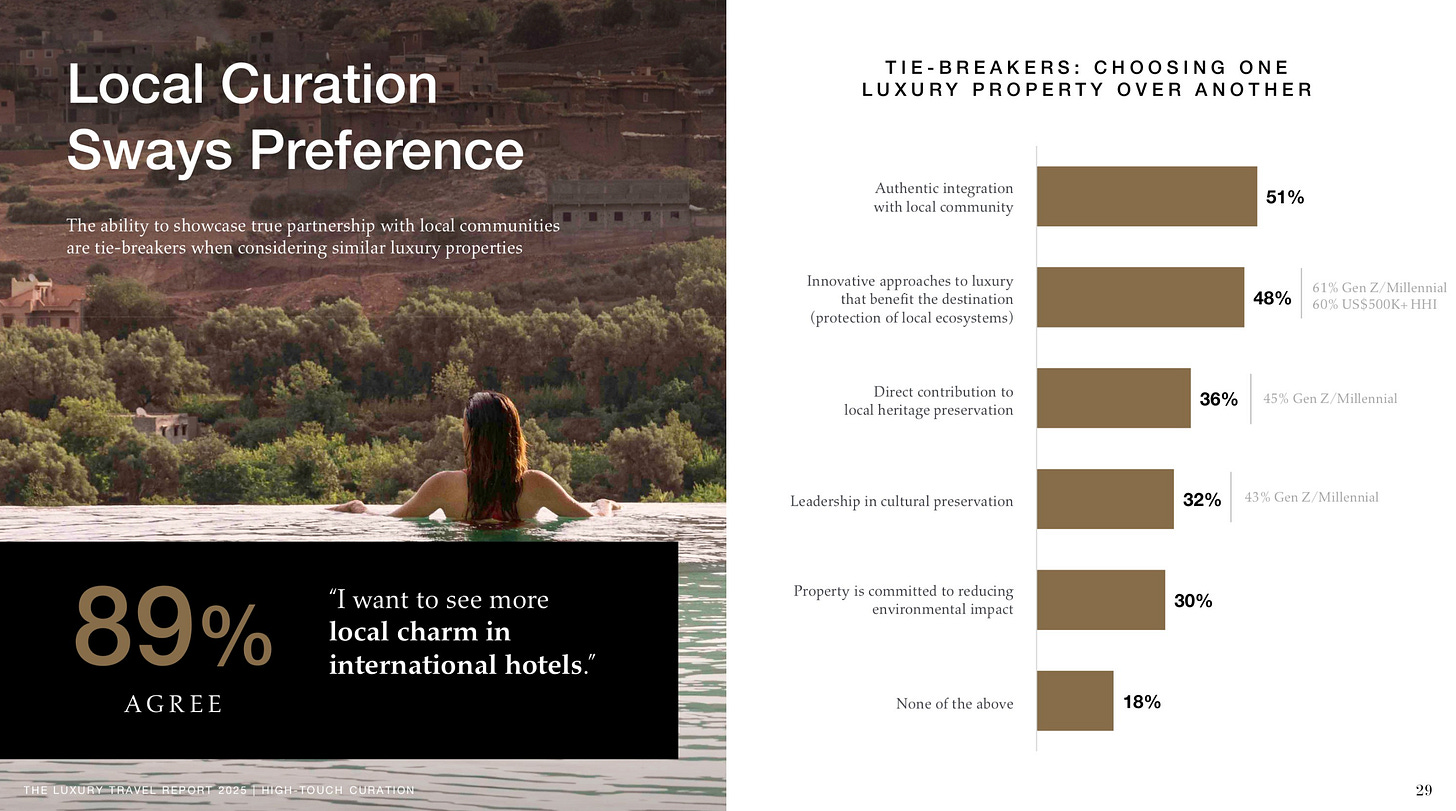
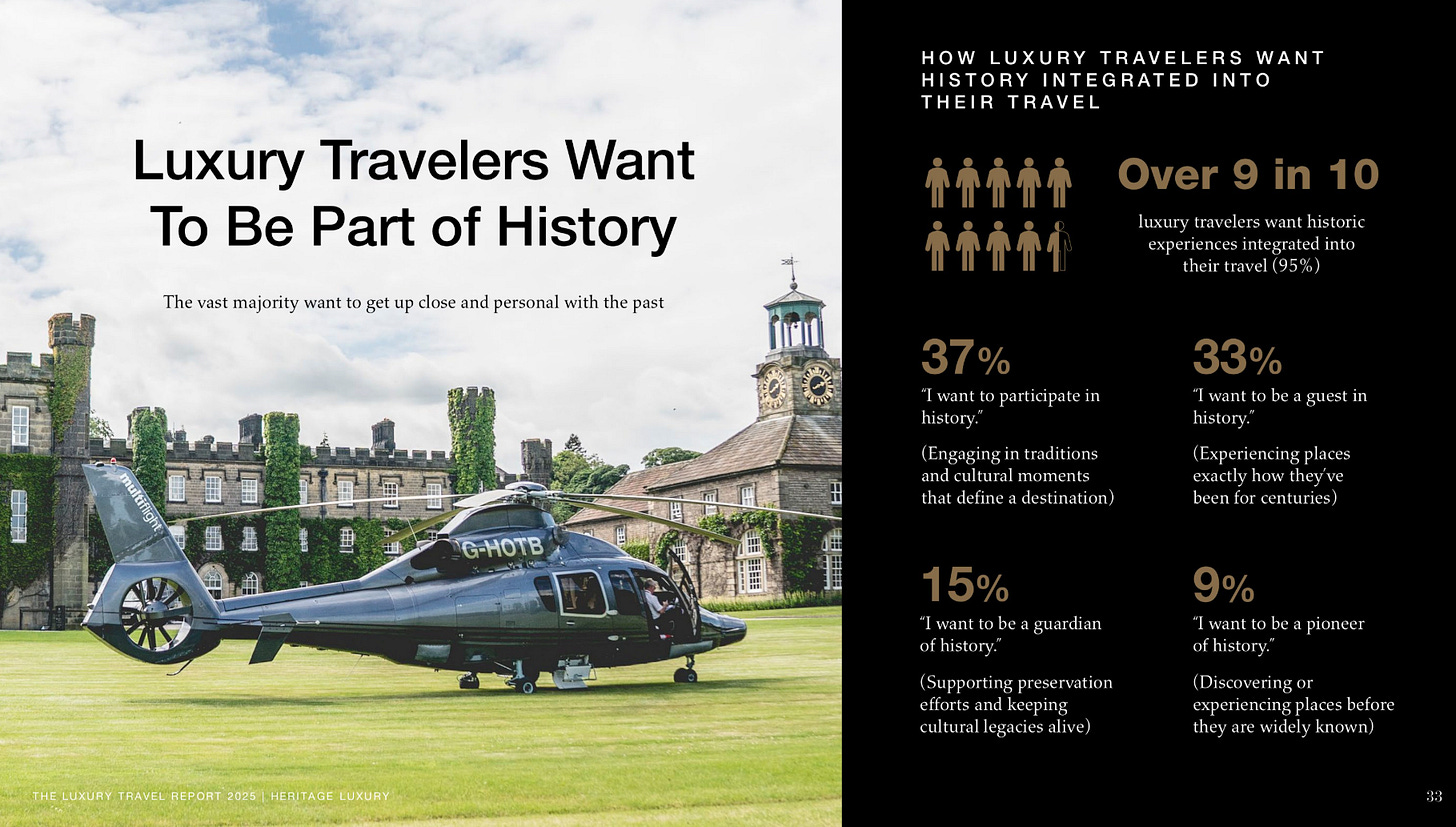
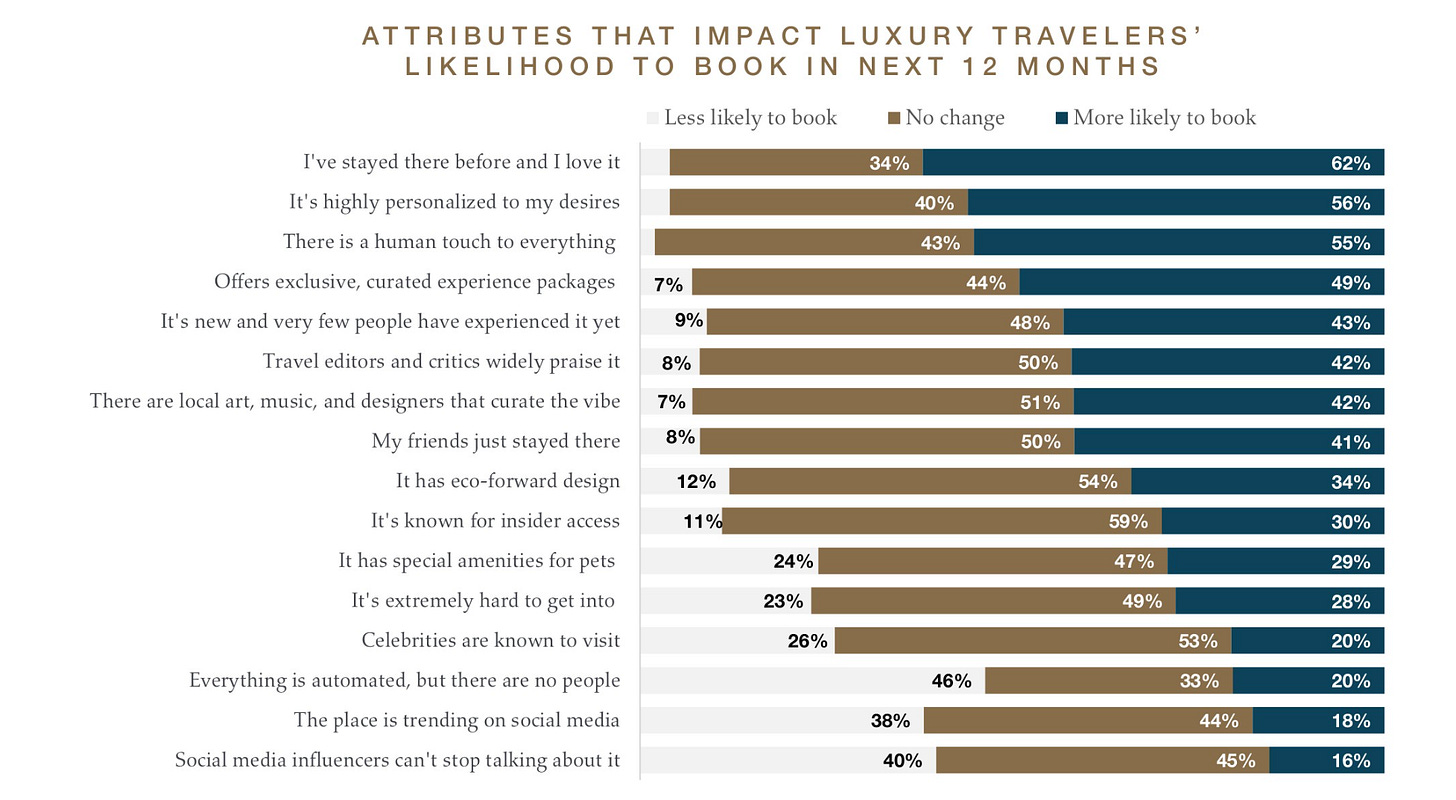

Could also be named the "Aman-ification" of luxury travel